Meet the brains behind Beat-Herder - Lancashire's best loved music festival
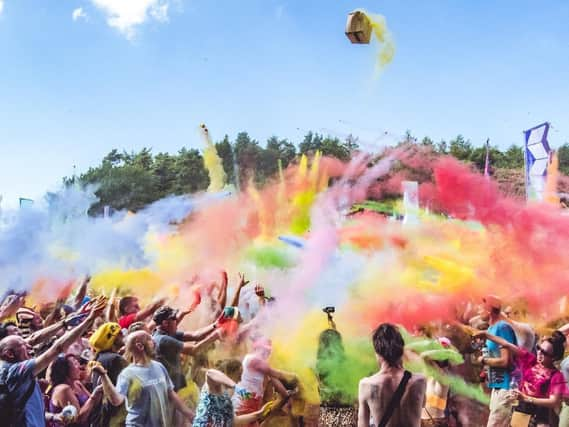

A second hand burger van and a crazy weekend selling toasted sandwiches at the Monsters of Rock heavy metal festival is firmly entrenched in Beat-Herder folklore.
"We rescued the Panini press from a scrap heap, and that was the best £2.50 we ever spent,” recalled Beat-Herder’s co-founder Jamie Foxon. “We bought the van for £400 and travelled to festivals all over Britain, learning on the hoof how to do it. He adds: “And we sold enough Paninis at Castle Donington to pay for the main stage at the first Beat-Herder, and that was the beginning.”
Advertisement
Hide AdAdvertisement
Hide AdThat was June 2006, when an enthusiastic and curious army of dance fans turned up on a sun-baked field under the shadow of Pendle Hill. “We had a tiny stage in a meadow; there was Colin in the reggae tent, a naked sauna, Trailer Trash (now Trash Manor) a couple of hippie food stalls and a witch tent.”
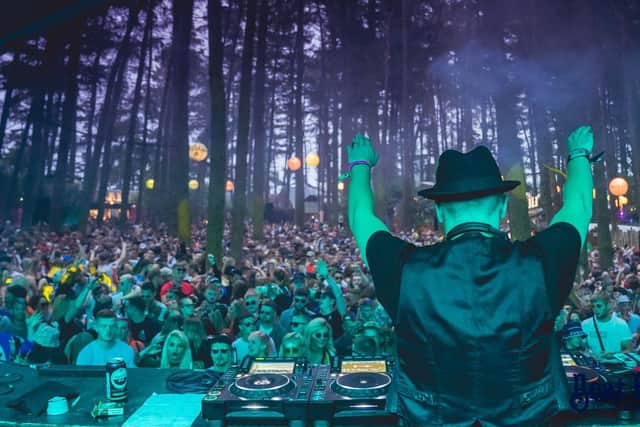

Two years earlier they had discreetly placed an advert in the Farmers’ Guardian newspaper. It read: ‘Land wanted for wedding ceremony.’
“We were just scouting about the Ribble Valley, trying to find a nice spot to put a bit of a do on,” said Jamie. “A few farmers phoned up and then we went down to have a look at the site where we are now, near Clitheroe, and saw it had potential.The idea was to stage a little rave gathering and we did that for two years. But it began to get a bit chaotic. A lad fell out of a tree, broke his leg, and then we realised to have a few hundred dancing idiots in a field then you had to be safe.”
Today, Beat-Herder has a capacity for 12,000 and is one of the UK’s few truly independent festivals left. “It is a huge challenge for every independent festival, but the best thing about having true independence is that we can call the shots on who we book, and the way we design the site.”
Advertisement
Hide AdAdvertisement
Hide AdWind back the clock a decade ago, and Beat-Herder’s HQ was a dusty loft in a terraced house in Keighley. “We’d sit on kids’ chairs, balancing a clapped-out old computer on a couple of boxes, working under the eaves of the roof,” said Jamie.
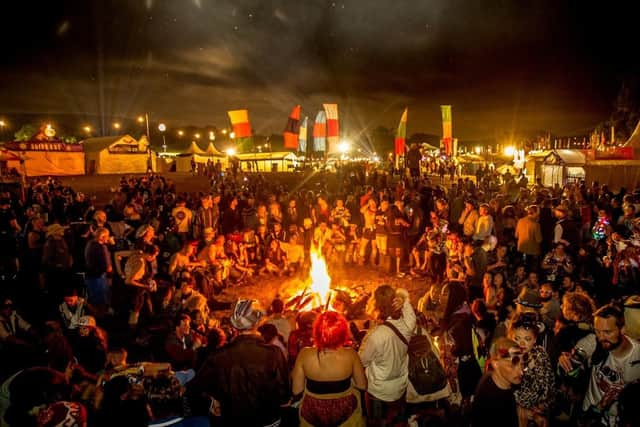

“We didn’t have e-mail or on-line banking, so we sent tickets out through the post, licking the envelopes and stamps and then walking to the post office. One day, a cheque arrived requesting six tickets. We were absolutely ecstatic, dancing in the living room with excitement. Now people buy 30 or 40 tickets at a time.”
But the Beat-Herder dream nearly faded in the first 12 months.“We re-mortgaged the terraced house, our office, and everybody put £1,000 in. We lost £20,000 at the first Beat-Herder and I don’t know how we carried on. But we held our nerve and now something beautiful has grown from a tiny acorn.”
Co-founder Nick Chambers has played a huge role in the Beat-Herder story. He said: “It was all a bit Heath Robinson at first but that was the passion and drive that created it. When you look back it is ridiculous, but in terms of the concept of Beat-Herder and how it’s done, well things haven’t really changed that much.”
Advertisement
Hide AdAdvertisement
Hide AdBeat-Herder remains a much needed antidote to the corporate festival scene. And while many festivals have fallen by the wayside, this gem of a shindig in the heart of the Ribble Valley has thrived.
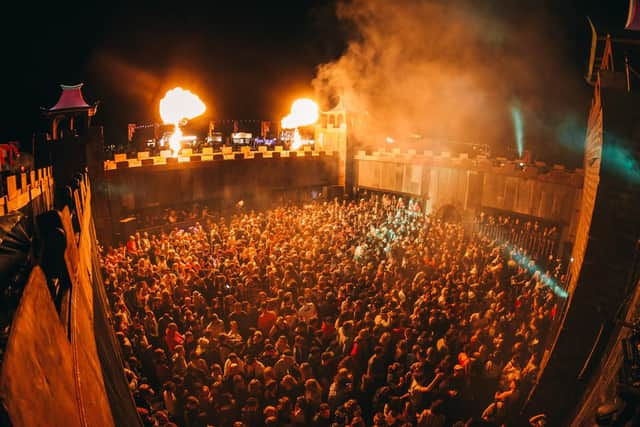

Most significantly, the six-strong committee, all old school mates and a mixture of plumbers and electricians, remain at the helm. They have steered a steady course and still nurture the original concept of getting together in a field and having a rip-roaring party every July.
“It is refreshing in a way, that it is still us doing it in the same fashion,” said Nick. “A lot of things change very quickly these days, but we are very lucky to be where we are and as people we like to fly under the radar. I think we are blessed. We get a lot of love from a lot of people and that makes us very happy because they feel empowered and rightly feel part of the event. It is not a mercenary money exercise. We put it on so they can come and enjoy a wonderful three days in this beautiful part of Lancashire.”
Nick added: “We’ve had people asking us if they can arrive a bit later on Friday because they were getting married in the morning and others have renewed their marriage vows at the Stone Circle. At the last count, we had 2,000 Beat-Herder fans with Beat-Herder tattoos.”
Advertisement
Hide AdAdvertisement
Hide AdThe music is joyous, but it is the subtle nuances, the incredible attention to detail, which makes the Beat-Herder experience extra special. From lovingly hand-crafted signs and stages, to homemade hymn books; you can lose yourself in a haze of creativity and imagination.
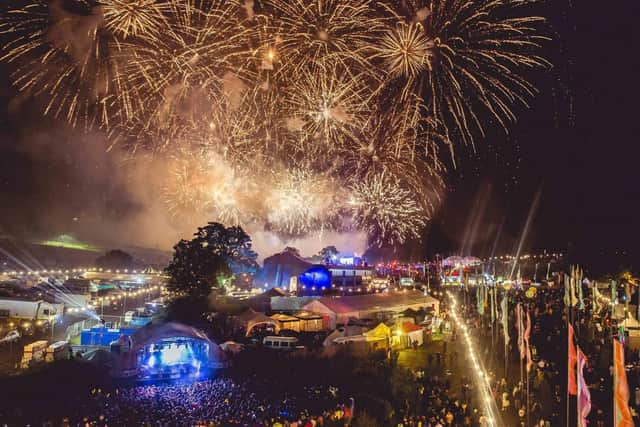

Deep in the Toil Trees a DJ spins vinyl from the cab of an old taxi and, if you choose, you can dance on the roof of a second-hand car. And if you need to slake your thirst, then enjoy a quick half a bitter and a game of darts down The Beat-Herder and District Working Men’s Social Club. You can even take a journey down the burrow and other secret passageways and emerge, blinking, into an underground rave.
Last year, a few hundred lucky souls were able to squeeze into the Beat-Herder chapel for the Saturday service. Lancashire-based DJ Paul Taylor was asked to do a secret gig from the pulpit of the wooden church. “We are incredibly proud of all that, but you have to be watchful because the vibrancy and direction of the festival can change quickly if you’re not careful,” said Nick. “Take the giant flags as an example. They look beautiful fluttering in the wind and a lot of people say they feel joy when the first thing they see from the A59 is the flags as they enter Beat-Herder.
“They cost £40 each and there’s about 200 dotted all over the festival site. So, from a money point of view you could say it is a bit pointless. But if you take those flags away it would be like leaving your lounge bare at Christmas because you’ve not put up the decorations.”
Advertisement
Hide AdAdvertisement
Hide AdFor the previous five years Beat-Herder has banned plastic cutlery and polystyrene food trays in a bid to stem the tide of plastic waste. They were one of the first festivals in Britain to switch to canned water when they teamed up with Austrian company, Can-O-Water. The UK uses 38m plastic bottles every day, but once recycled an aluminium can is back on the shelves in six weeks.
“Like millions of us, we saw those very powerful David Attenborough documentaries about the climate change threat to our planet and we realised that we had become part of the problem too,” said Nick.
“We were selling drinks in plastic bottles, and we said: ‘What can we do to change this?’ It was of paramount importance to reduce plastic consumption, but that’s a hard thing to do, becoming instantly plastic-free at a festival, catering for between 10 and 12,000 people.
Nick added: “We’ve invested a huge amount of money switching from plastic to aluminium cans, but we believe it is a price worth paying to help the environment. At first, we expected a bit of a backlash from our festival-goers, but we got a very positive reaction. But there’s got to be a culture change from the festival audience and a realisation of their actions.”
Advertisement
Hide AdAdvertisement
Hide AdThis year Rudimental, Groove Armada, Sister Sledge, The Sugarhill Gang and Melle Mel will provide the main Beat-Herder headliners.So where did the festival name originate?
Nick Chambers, who came up with the title, said: “It is the beat of the drum, the herding of the sheep, and the music of the farm. One chap said Beat-Herder felt like an Alice in Wonderland for grown-ups - and that will do for me.”
* Beat-Herder which takes place at Dockber Farm, near Sawley, from July 12-14